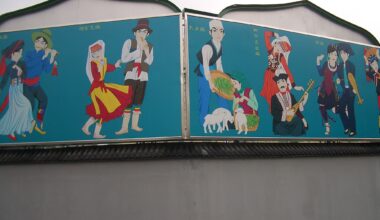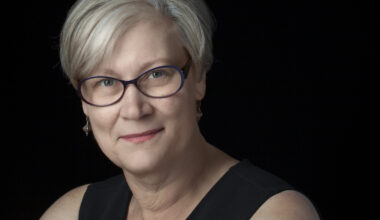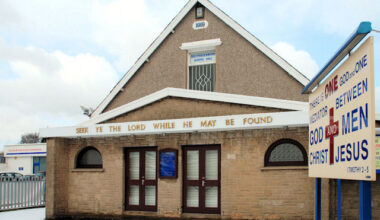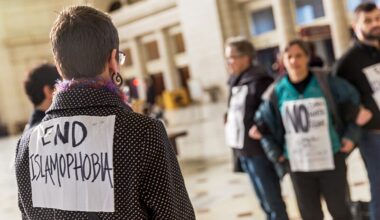
Pakistan embodies both modernity and pre-modernity, in that it is a nuclear power with a feudal social system. Throughout Pakistan’s history, feudalism has put political and economic power in the hands of large landowners (essentially feudal lords) and has prevented the rest of society from prospering educationally or economically. Some have argued that feudalism in Pakistan originated with British imperialists, but regardless of how it began, it has played a significant role in our politics and society for hundreds of years, right up to the present. As the analysts Jahanzaib Khan, Humaira Arif Dasti, and Abdul Rasheed Khan have put it, describing the situation since Pakistani independence was achieved in 1947:
The feudal lords, with massive amounts of mortgaged capital, invested massively in industry and the service sector. Pseudo-landlords became pseudo-capitalists. Similarly these feudal lords held high position[s] in [the] army and civil service…[and] almost all Pakistani politicians are feudal [lords]. Almost half of Pakistan’s Gross National Product and the bulk of its export earnings are derived primarily from the agricultural sector controlled by a few thousand feudal families. Armed with a monopoly of economic power, [the feudal lords] easily [took] political power. Thus there are very few efforts to uplift [the] poor…and society is divided into two groups; [the] have[s] and have not[s].
Essentially, feudalism deprives most members of society of their basic rights and keeps them silent in the face of injustice. Feudal lords act like dictators. They always wish to suppress the rights of the people, so that no one can speak against or challenge them.
Education and economic development would challenge feudalism, hence why both are opposed by the system. Education would lead to people challenging irrational social and cultural norms, while economic development would decrease the dependency of the peasants on the lords, inspiring them to decide their future without any fear or pressure.
The Pakistani political and bureaucratic system is largely manipulated by these feudal lords. They have been part of every political system since Pakistan’s founding in 1947 and have strong connections in law enforcement departments and the judiciary. They have effectively bribed the whole system.
In 2006, a local feudal lord, Seth Abdul Rahman, beat a 19-year-old boy in the middle of the crossroads because the boy had dared to not vote for Rahman’s favoured religious party.
Recently, in Sanghar, a local feudal lord cut off the leg of a camel. Why? Just because the innocent animal had entered his field. Such is the arbitrariness and cruelty of the landowners in Pakistan.
That incident reminded me of the time I witnessed the system in action. I remember that, in my village, Chirra Polad, in 2006, a local feudal lord, Seth Abdul Rahman, beat a 19-year-old boy in the middle of the crossroads because the boy had dared to not vote for Rahman’s favoured religious party.
Rahman and 15 men armed with sticks and guns stopped a bus in the middle of the street, entered it, and brutally dragged the boy out. They took him away to be tortured. My father tried to save the boy but was unable to do so.
When the police asked for evidence from the victim of violence, no one apart from my father was willing to testify. When he did so, Rahman threatened him with dire consequences.
Rahman proceeded to disconnect our electricity and support the usurpers of one of the canals on our land. Meanwhile, he threatened people, warning them to not have any economic dealings with us. I was a young boy at this time, but already I had experienced the dangers of standing up to my country’s feudal system.
Later, in 2016, also in our village, another feudal lord, Malik Kalo Khan, kidnapped and tortured another young boy (Suleiman) who had offended against the system. Khan forced Suleiman’s family to pay large amounts of money and give their teenage daughter’s hand in marriage (to give an unwed girl to an aggrieved party is a Pakistani custom known as Vani—the word is derived from vanay, ‘blood’, as in ‘blood for blood’).
I raised my voice against this and Khan tried to bribe me with 50,000 rupees. I rejected the bribe and publicised the incident on Facebook. Though this helped to resolve the Vani issue, the family was still forced to pay Khan money—this was how the police tried to settle things down. But I was now more determined than ever to use my journalism to oppose this oppression whenever it reared its head.
Ullah and his entire family, including the women, were made to walk barefoot through the streets of our village with a necklace of shoes on their necks and forced to ask for forgiveness.
In 2018, again in my village, a person named Inayat Ullah was accused of having illicit relations with the daughter of a relative of Haji Nawaz Seth, another influential feudal lord, and he was punished for it. According to Ullah, ‘the whole community came together and found me guilty and gave us this punishment.’
Ullah and his entire family, including the women, were made to walk barefoot through the streets of our village with a necklace of shoes on their necks and forced to ask for forgiveness. After hearing this story, I immediately wrote a news article in the Daily Times. Soon after, the police arrested all the people who had decided to punish us so cruelly. Again, though, the feudal lords got off lightly.
The feudal lords had already long since decided that my father, Malik Nazar Isra, and I, who were the only people consistently opposing them, had to be taught a lesson. We were a nuisance to them, always raising our voices against their oppression and cruelty. Perhaps the lords thought that if our resistance wasn’t crushed, it could pave the way for others to challenge their power—the one thing they fear most.
For example, in December 2013, we heard the news that two houses in the village had been robbed. One of them was Haji Nawaz Seth’s, and many tolas of gold and silver had been stolen. The local feudal lords sent out a team of search dogs. My family got the blame, of course. Even today, the words of the feudal lord Malik Kalu telling the dog owners that ‘the thief is none other than Malik Ramzan Isra’s family’ still ring in my ears. The dogs ran around our house while Seth’s supporters chanted ‘Thief, Malik Ramzan Isra, thief!’.
My father and I were taken away by Seth’s men and kicked and beaten and I was pushed around the streets of the village before Seth handed us over to the police—who tortured us in the lord’s presence.
I was chained upside down and plunged into the cold water of the canal (it was winter). Despite our treatment, we refused to bow. We knew we were innocent. The torture continued until my father couldn’t take it any more and made a deal with Seth to pay seven tolas of gold and 40 tolas of silver.
The consequences were terrible. We were isolated: others in our village were forced to cut off relations with us. We were forced to take out a loan to pay Seth (we are still in debt today). My whole family suffered stress, and my father had a heart attack.
The stories above are just a few of the thousands of stories that could be told about the barbarism imposed upon Pakistanis every day.
Despite all of this, I remain determined to call out injustice. I have survived various attacks from people who feel threatened by my journalism. For example, I covered the Sharifa Bibi case of October 2017, calling out the men who assaulted this teenage girl and forced her to parade around her village naked.
The stories above are just a few of the thousands of stories that could be told about the barbarism imposed upon Pakistanis every day. They are perfect examples of Pakistan’s rotten feudal system, in which landowners, buttressed by the system, use their power to intimidate and control ordinary people.
Pakistan will never be free until the feudal system is broken. Perhaps by telling these stories and making more people aware of the problem, that day of reckoning will come sooner rather than later.
Related reading
How the persecution of Ahmadis undermines democracy in Pakistan, by Ayaz Brohi
From the streets to social change: examining the evolution of Pakistan’s Aurat March, by Tehreem Azeem
Surviving Ramadan: An ex-Muslim’s journey in Pakistan’s religious landscape, by Azad
Coerced faith: the battle against forced conversions in Pakistan’s Dalit community, by Shaukat Korai
Breaking the silence: Pakistani ex-Muslims find a voice on social media, by Tehreem Azeem
The power of outrage, by Tehreem Azeem
Religion and the decline of freethought in South Asia, by Kunwar Khuldune Shahid








1 comment
“The Evils of Feudalism in Pakistan: A Personal and Political Narrative” likely explores the entrenched social and political problems that stem from the feudal system in Pakistan, particularly how it perpetuates inequality and power imbalances. Feudalism, though formally abolished, continues to influence Pakistani society, especially in rural areas where land-owning elites maintain control over large swaths of land and have significant sway over local governance, politics, and even law enforcement.
The “personal and political narrative” approach suggests the piece blends individual experiences with broader socio-political commentary. From a personal perspective, the author might share how feudalism has impacted their own life—perhaps through family dynamics, social mobility, or economic opportunities. On a political level, the narrative might examine how the feudal system hampers democratic development, perpetuates corruption, and leaves marginalized communities, particularly the rural poor, disenfranchised.
The evils of feudalism in Pakistan are well-documented in both historical and contemporary contexts. Land-owning families often control political offices through patronage networks, ensuring that the economic and social status quo remains unchallenged. This concentration of power prevents reforms, limits education and healthcare access for rural populations, and keeps the broader society trapped in cycles of poverty and oppression.
By addressing the personal dimension, the narrative could offer insights into how individuals within this system struggle to break free from these constraints—whether through education, activism, or migration. Meanwhile, the political lens would highlight the larger forces at play: how feudal elites maintain power through political manipulation, vote-buying, and influencing local justice systems.
Your email address will not be published. Comments are subject to our Community Guidelines. Required fields are marked *
Donate